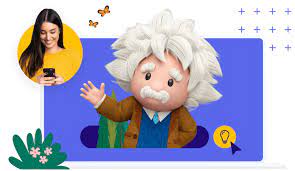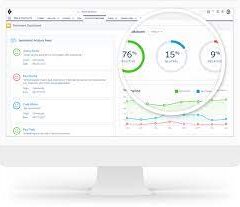Salesforce is entering the AI agent arena with a new service built on its Einstein AI platform.
Introducing the Einstein Service Agent, a generative AI-powered self-service tool designed for end customers. This agent provides a conversational AI interface to answer questions and resolve various issues. Similar to the employee-facing Einstein Copilot used internally within organizations, the Einstein Service Agent can take action on behalf of users, such as processing product returns or issuing refunds. It can handle both simple and complex multi-step interactions, leveraging approved company workflows already established in Salesforce.
Initially, Einstein Service Agent will be deployed for customer service scenarios, with plans to expand to other Salesforce clouds in the future.
What sets Einstein Service Agents apart from other AI-driven workflows is their seamless integration with Salesforce’s existing customer data and workflows.
“Einstein Service Agent is a generative AI-powered, self-service conversational experience built on our Einstein trust layer and platform,” Clara Shih, CEO of Salesforce AI, told VentureBeat. “Everything is grounded in our trust layer, as well as all the customer data and official business workflows that companies have been adding into Salesforce for the last 25 years.”
Distinguishing AI Agent from AI Copilot
Over the past year, Salesforce has detailed various aspects of its generative AI efforts, including the development of the Einstein Copilot, which became generally available at the end of April. The Einstein Copilot enables a wide range of conversational AI experiences for Salesforce users, focusing on direct users of the Salesforce platform.
“Einstein Copilot is employee-facing, for salespeople, customer service reps, marketers, and knowledge workers,” Shih explained. “Einstein Service Agent is for our customers’ customers, for their self-service.”
The concept of a conversational AI bot answering basic customer questions isn’t new, but Shih emphasized that Einstein Service Agent is different. It benefits from all the data and generative AI work Salesforce has done in recent years. This agent approach is not just about answering simple questions but also about delivering knowledge-based responses and taking action.
With a copilot, multiple AI engines and responses can be chained together. The AI agent approach also chains AI models together. For Shih, the difference is a matter of semantics.
“It’s a spectrum toward more and more autonomy,” Shih said.
Driving AI Agent Approach with Customer Workflows
As an example, Shih mentioned that Salesforce is working with a major apparel company as a pilot customer for Einstein Service Agent. If a customer places an online order and receives the wrong item, they could call the retailer during business hours for assistance from a human agent, who might be using the Einstein Copilot. If the customer reaches out when human agents aren’t available or chooses a self-service route, Einstein Service Agent can step in.
The customer will be able to ask about the issue and, if enabled in the workflow, get a resolution. The workflow that understands who the customer is and how to handle the issue is already part of the Salesforce Service Cloud. Shih explained that Einstein Studio is where all administrative and configuration work for Einstein AI, including Service Agents, takes place, utilizing existing Salesforce data. The Einstein Service Agent provides a new layer for customers to interact with existing logic to solve issues.
“Everything seemingly that the company has invested in over the last 25 years has come to light in the last 18 months, allowing customers to securely take advantage of generative AI in a trusted way,” Shih said.










